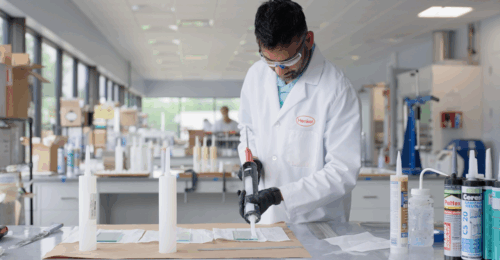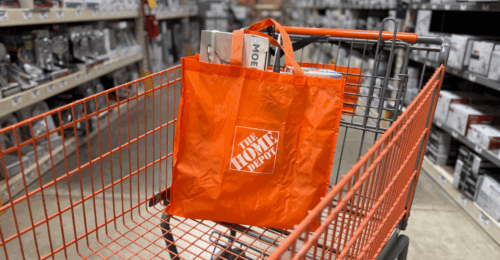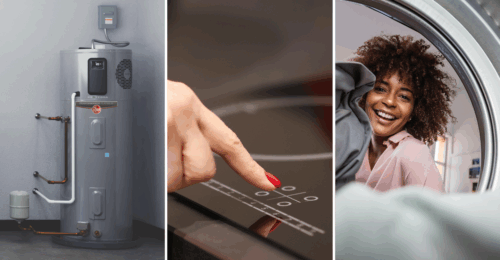As The Home Depot looks for partners to lead our industries into a cleaner future, one clear leader in carbon reduction is TTI. A world leader in power technology, TTI is the manufacturer of such reputable brands as RYOBI and Milwaukee. For years, TTI has been leading advancements in lithium-ion battery technology. In 2020, The Home Depot named TTI as its environmental partner of the year.
There’s a very simple reason for this acclaim, which is that advancements in battery technology have made it possible to reduce the use of combustible engines in household chores. Cordless products have gotten more reliable, more powerful and more accessible. More and more homeowners are replacing heavy, carbon-emitting, combustible-engine equipment with convenient, cordless outdoor power equipment such as blowers, mowers, chain saws and hedge trimmers. Read on to find out how TTI is working to improve all aspects of their products.
TTI is committed to minimizing the environmental impact in both the design and life cycle of our products. As such, TTI is a leader in gas-to-cordless innovation, with cordless products that are environmentally responsible and petroleum independent, a feature which, in turn, eliminates the incidence of gas spills during use.
To better understand the difference in carbon emissions that cordless equipment provides, TTI asked an independent expert to compare the RYOBI Cordless Lawn Mower with one of its combustible-engine lawn mowers. The tests revealed that after 500 uses, the RYOBI Cordless Lawn Mower had significantly lower greenhouse gas emissions. Specifically, the carbon footprint of the RYOBI Cordless Lawn Mower was approximately 166% or 2.6 times lower than the gas-powered mower.
TTI also recognizes that the environmental costs of a product begin long before it’s purchased. Thus, the same independent experts were asked to compare the manufacturing carbon footprint of the two mowers, namely as a result of their materials, manufacturing and assembly. The results of the analysis showed that the cordless lawn mower yielded a reduction of 8% in the greenhouse gas-emission footprint compared to that of the gas lawn mower.
But TTI’s environmental considerations begin even earlier with design innovation. TTI’s research and development projects not only aim to reduce emissions, but also to improve resource efficiency and increase the durability and recyclability of its products where possible.
TTI is working its way towards a closed-loop, circular economy. TTI conducts life cycle assessments and takes recyclability, repairability and longevity of products into consideration during the design development stage.
One example is the successful RYOBI cordless tools which currently rely on ONE+ lithium-ion battery technology. This brand platform meets all of the company’s design objectives as they are easier for customers to use while also effectively reducing resource consumption and waste.
TTI has minimized waste by using a system which has remained consistent since the launch of TTI’s first RYOBI ONE+ battery tool in 1996. The original system used a NiCad battery, which was replaced with lithium-ion in 2007. As battery technology advanced, TTI made it a priority to maintain the ONE+ system to ensure its relevance and compatibility across product generations.
This is great for consumers who were early adopters of cordless technology, as the original TTI NiCad tools are compatible with the newer lithium-ion batteries. Likewise, a battery from a previous generation can also be used with a newly launched tool. With the connection system remaining consistent between the battery and the tool, TTI’s system has allowed end users to buy compatible tools, batteries and chargers separately, minimizing waste and excess consumption for the past 23 years.
Another important product life cycle initiative to reduce environmental impact is TTI’s battery recycling program. As described above, TTI is a leader in the design and manufacturing of lithium-ion batteries, which are interchangeable within each brand to reduce battery waste. They strive to implement recycling partnerships globally with the goal of increasing the recycling rate of batteries and products which have reached the end of their useful lives.






